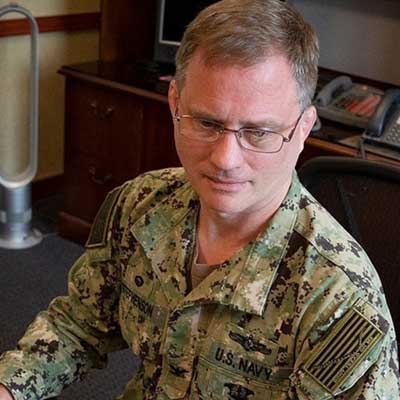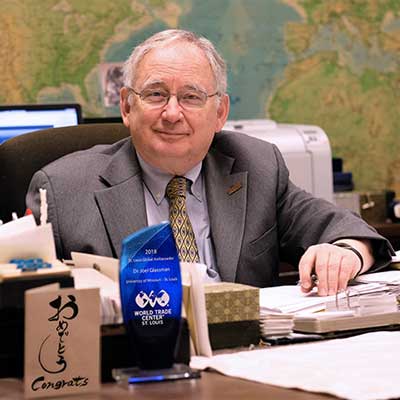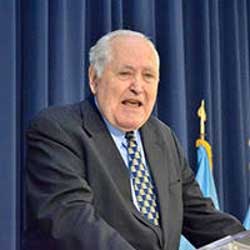2020 Topics & Speakers
Presentations begin at 12:00 PM and end at 1:30 PM. These sessions are free of charge and there is no need to register.
23 April 2020
India & Pakistan – Dennis Pruitt,
Missouri Partnership
The shutdown of global supply chains due to the Covid-19 pandemic brought to the fore an issue with the high level of global economic interdependence: what happens when one country is the main source for an item, say face masks, and then can no longer supply the item? Countries suddenly unable to meet the demand for certain supplies are faced with growing calls for economic nationalism. What are some of the lasting effects that the pandemic could have on global supply chains and trade? How would this affect national security?
Dennis Pruitt
V.P. Business Development
30 April 2020
China’s Road Into Latin America – Dr. Zhao Ma, Washington University in St. Louis
As the Trump administration continues to withdraw from the world stage, China is looking to fill the void. How does Latin America fit into China’s “One Belt, One Road” plan? How will the relationship with China affect the region? Should the U.S. be concerned about China’s growing “sphere of influence”?
Zhao Ma
Professor of Modern Chinese History & Culture
07 May 2020
Red Sea Security – Henry Stephenson, Captain United States Navy
The Red Sea has remained vital for global trade since the time of ancient Egypt. Once home to the spice trade, the Red Sea now sees millions of barrels of oil a day transported across its waters. With major nations like China, France, Italy, and the U.S. building large ports and bases in the region, what does the future of the region look like? How important is Red Sea security for global security? Can the region be a place of global cooperation?

Henry Stephenson
U.S. Navy, Captain
14 May 2020
Climate Change and the Global Order – Dr. Benjamin de Foy, St. Louis University
Climate change has become one of the defining issues of our time. As much of the world bands together to come up with a plan, the U.S. remains the notable holdout. What is the rest of the world doing to combat climate change? What impact will the effects of climate change have on global geopolitics?

Benjamin de Foy
St. Louis University
28 May 2020
Modern Slavery and Human Trafficking – Dr. Shima Rostami, Director, Gateway Human Trafficking
Almost every nation has enacted laws criminalizing human trafficking, and international organizations, governments, and NGOs sponsor a large variety of projects to curb trafficking and slavery. Billions of dollars have been allocated to these efforts. What is the international community doing to combat slavery and trafficking? What are the experiences like for those being trafficked?

Shima Rostami
11 June 2020
The Philippines and the U.S. – Dr. Joel Glassman Director Emeritus UMSL Int’l Programs
The Philippines has had a special relationship with the United States since the islands were ceded by Spain to the United States after the Spanish-American War at the end of the 19th century. However, since the election of Rodrigo Duterte, the country has pivoted more toward China, and away from the U.S. Duterte has also launched a large-scale war on drugs that many criticize for its brutality. What does the future hold for U.S, relations with the Philippines?


Joel Glassman
UMSL
18 June 2020
U.S. Relations With the Northern Triangle – Richard Millett, Professor Emeritus, SIUE
Combating illegal immigration has become a priority of the Trump administration. The Northern Triangle of Central America, made up of Honduras, El Salvador, and Guatemala, is a special target of the administration, which hold the nations responsible for the large flow of migrants from Latin America to the U.S. With funds from the U.S. cut, how can the Northern Triangle countries curtail migration?


Richard Millett
25 June 2020
Artificial Intelligence and Data – Professor Anshuman Singh, UMSL
Policymakers in many countries are developing plans and funding research in artificial intelligence (AI). Global growth is slowing, and not surprisingly, many policymakers hope that AI will provide a magic solution. The EU, Brazil, and other Western countries have adopted regulations that grant users greater control over their data and require that firms using AI be transparent about how they use it. Will the U.S. follow suit?



